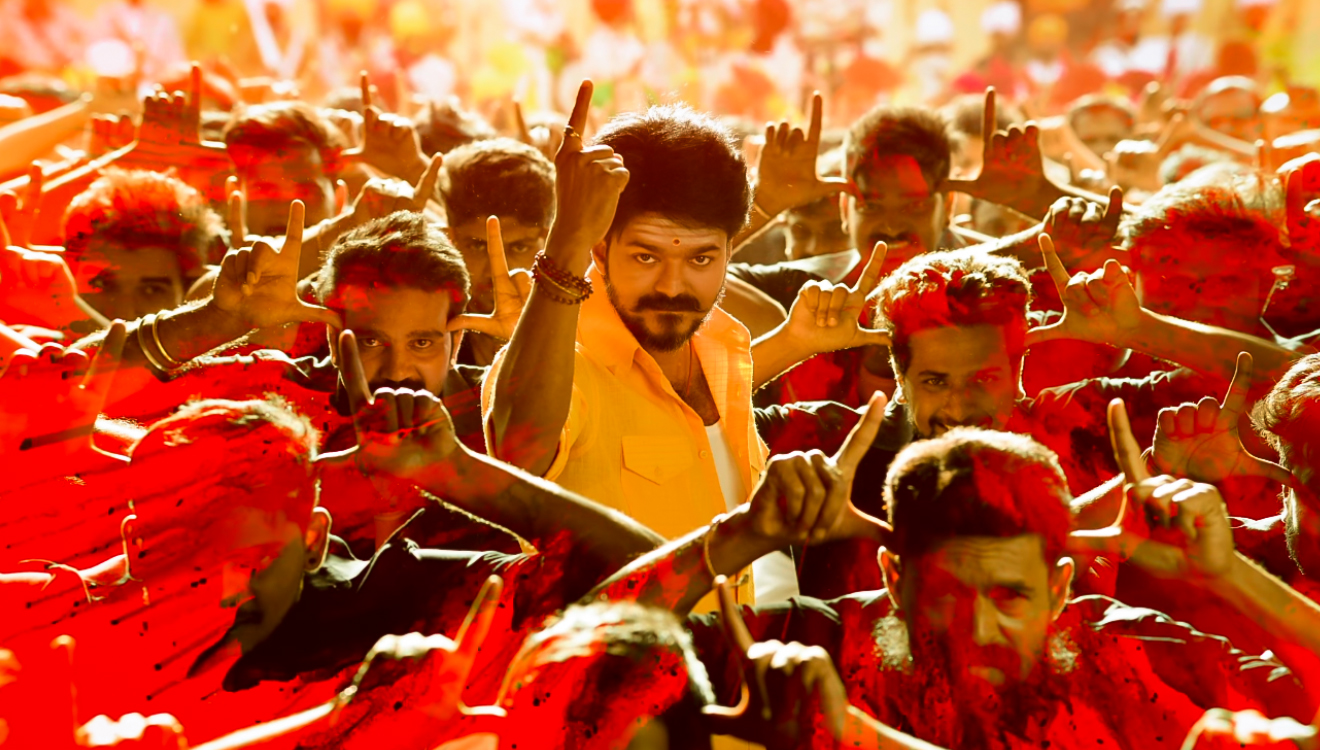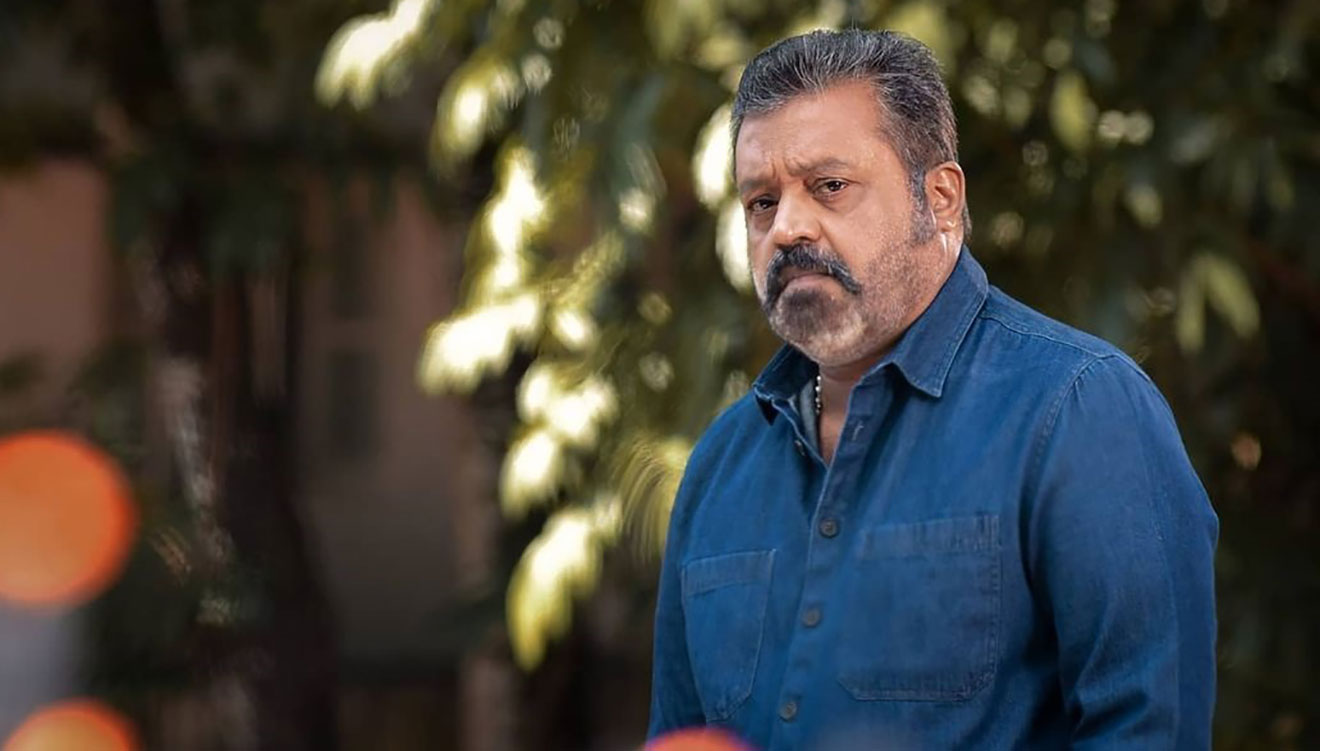The title Kaanekkaane hints at something that happens in front of your eyes as you watch. A memory erased, or a truth that appears out of the blue, changing the nature of relationships and life itself. In the opening sequence, a father quietly cleans the grave of his dead daughter. Seemingly unattended for a long time, the ledger stone has collected a heap of fallen leaves and mush. Later that day, he visits the house of his former son-in-law, meets the latter’s new wife and his grandson. As he watches the family members interact, he realises that the signs of the dead woman, like the letters on her grave, have disappeared in the husband and the son. Isn’t deletion of memory a form of betrayal?
Written by Bobby-Sanjay and directed by Manu Ashokan, the film is a slow-paced drama that discusses grief and the desire for vengeance. The latter plays out in the narrative like a riddle. When Paul (Suraj Venjaramoodu) chances upon a shocking piece of information about Sherin’s (Sruthi Ramachandran) death from a carelessly placed photograph at Allen’s (Tovino Thomas), he decides to seek revenge. Paul, who had been blaming a lax taxi driver for the accident all along, suddenly finds a new enemy, a target to steer his anger and grief towards.
The knowledge of a secret puts Paul, and the viewer, in a godly position, powerful enough to destroy or forgive. But, can the spectator make a fair judgement if the film makes every effort to paint a deceitful, mushy picture of the proceedings, reducing a complex question about human nature into a toddler’s bedtime tale?
Kaanekkaane begins well – the picture of Paul’s broken family subtly coming to form. At a shop, he asks for chocolates for his beloved grandson and a packet of candles that he takes to the cemetery in memory of Sherin. He meets Sneha (Aishwarya Lekshmi), Allen’s heavily pregnant wife, and Aaron, Sherin’s son, who affectionately addresses the former as ‘amma’. At the dinner table, Sneha’s parents ask him to drop the hit-and-run case so that everyone can be at peace. Paul seethes quietly while Sneha and Allen exchange anxious glances.
Here, the narrative is fluid; every cut and dialogue sprouting organically through the screenplay. The viewer empathises with Paul when he goes about disrupting the life of the couple, and stands in solidarity with his desire for vengeance. The gaze, here, is inward, into the grieving man’s psyche, granting him the right to be volatile and cruel. Rather unusual for a film targeting the mainstream audience who, thanks to years of exposure to soap-operatic narratives, have acquired an aversion for bleakness.
The latter half of the film, nevertheless, assures that the hopes were misplaced. The film smoothly moves back and forth the timeline, revealing the incidents that happened before and after Sherin’s death, creating a complete picture by the time the film hits the halfway mark. Now that there are no more secrets left to examine, the sensitivity Kaanekkaane displayed in the former half changes shape to kitsch aimed at manipulating the audience into looking for a simplistic, heart-warming conclusion.
Allen, the film explains through a set of scenes that offer a limited perspective, became a monster of a husband who cheats and abandons thanks to circumstances. Instead of finding a compelling moment of catharsis for Paul, the film asks the viewer to go easy on Allen, a man whose life looks like a catalogue of self-absorbed and toxic behaviour. The little grandson starts to speak like a fully-formed adult and requests the gloomy Paul to leave him alone, declaring his love for Allen and Sneha. And the tail-end scene is reminiscent of old fables, a done-to-death template in literature and cinema, so predictable that one can see it coming many miles away.
Suraj Venjaramoodu, an exceptional actor, manages to hold his own even as his character’s motives become wildly ambiguous. However, in the flashback sequences, there is a misplaced sense of restraint in his body language. He is strangely reluctant while interacting with his daughter, teasing her about quarrelling with her husband. Tovino Thomas, a lot of his face hidden under his lush facial hair, delivers a neat performance, just enough to convey Allen’s muddled subconscious.
Recommended
The premise of Kaanekkaane takes off from countless front-page news items about women who were eliminated to make room for the men’s illicit desires. Through Paul’s responses in the initial half – for one, that shot of him visiting the spot of the accident one last time before agreeing to close the legal case – the film invites the viewer to reflect on the grief that these deaths leave behind, on the cold and clinical world where no one is really irreplaceable. The film’s betrayal of its own cause hits hard because it began with immense promise.
*****
This Kaanekkaane review is a Silverscreen original article. It was not paid for or commissioned by anyone associated with the movie. Silverscreen.in and its writers do not have any commercial relationship with movies that are reviewed on the site.



